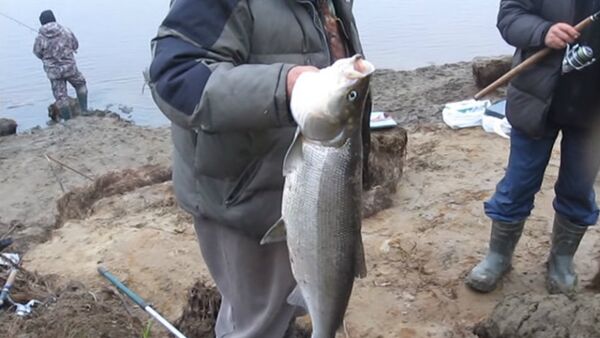"The nelma is great," Petri Heinimaa from Luke told Finnish state broadcaster Yle. "It's big, tastes good and is resilient to diseases," he added.
In nature, nelmas, also known as sheefish and inconnu, can grow up to 1.5 meters in length and weigh over 20 kilograms (44 pounds). The only drawback for industrial farming is that nelmas are slow growers and mature rather late. However, patience is rewarding, as the nelma is delicious as a salted fish, as well as both cold and hot-smoked, and would be a welcome addition to the menu of a gourmet restaurant. By Heinimaa's own admission, the high price may be well offset by the nelma's exquisite taste.
"Its tenderness, size and salmon-like greasiness are well worth the high price per kilogram," Heinimaa said.
At Laukaa, nelmas are farmed using whitefish breeding techniques.
Uusi arvokala Suomen kalamarkkinoille
— Yle Uutiset (@yleuutiset) 26 сентября 2016 г.
– Nelmasta toivotaan tuontilohen korvaajaa#yle https://t.co/1G28uofMfI pic.twitter.com/9zVrLCz3N3
"We've done very well with them," Heinimaa said. "All evidence points to the fact that the nelma is a safe import and may become new boon for the industry."
"In Russia the nelma has become more rare in nature, and is somewhat endangered," Risto Kannel from Luke told Yle. "The Russians tried to farm it there because it's a preferred dish. We want Finns to follow suit as well."
The Natural Resources Institute of Finland aims to deliver nelma spawn to independent fish farms, which number some 200 in Finland.
In the 1960s, Norway pioneered salmon aquaculture, which spread quickly to Scotland, Ireland, Iceland, the Faeroe Islands, Canada, the US, Russia and Denmark. Today, Norway remains Europe's largest supplier of farmed fish. In the first six months of 2016, Norway exported seafood worth 42.6 billion NOK ($5.2 billion).





